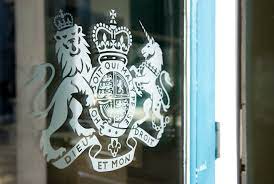HMRC umbrella company ‘checking tool’ looms for workers
Umbrella company consultation response and guidance due from HMRC, as more details come out on Tax Administration and...
READ MORE
Small firms were only receiving around one-fifth of public service procurement tenders payments according to a report from the British Chambers of Commerce.

The report found that SMEs are now receiving a relatively smaller amount of reported direct government procurement spending than they were five years ago — around £1 in every £5 (21 per cent).
The BCC’s SME Procurement Tracker — the UK’s most comprehensive source of data on SME procurement, in partnership with Tussell — has revealed that while the value of published public sector procurement spending with SMEs has increased, the proportion of total government money awarded directly to SMEs has not grown over the past five years.
The value of reported public procurement spending in the UK increased over the period 2016–21 with the amount spent on third-party goods, services, and works up more than twofold during this time, rising from £80 billion in 2016 to £181 billion in 2021.
The total value of direct public spending with SMEs in 2021 was up significantly on previous years, nearly doubling from £20 billion in 2016 to £38 billion in 2021.
In 2021, just over 105,000 SMEs invoiced the wider public sector directly for a median annual amount of £32,000.
In 2016, 25 per cent of public sector procurement spending was awarded directly to SMEs. By 2021, this figure had dropped to 21 per cent, indicating that only just over £1 in every £5 spent by government on public services went straight to SMEs, excluding indirect spending with SMEs via the supply chain. This is significantly behind central government’s target of spending £1 in every £3 with SMEs by 2022.
As a proportion of their overall procurement budget, direct spending with SMEs by local government bodies was the highest at 38 per cent. NHS bodies across England spent 22 per cent of their procurement budget with SMEs, while central government was significantly lower than the average — awarding only 11 per cent to SMEs.
Alex Veitch, director of policy and public affairs at the BCC, said SMEs have traditionally struggled to access government business and have often found bidding for public sector contracts prohibitively bureaucratic, time-consuming, and expensive.
“While gradual improvements have been made in recent years, our tracker shows that further change is still required to unlock the public sector’s access to SMEs’ innovation and creativity,” he said.
“It is disheartening to see that as the level of public sector procurement spending grew over the past few years, the proportion of spending awarded directly to SMEs did not.
“We welcome the government’s Procurement Bill which we hope will create a simpler, more flexible system which should accelerate government spending with SMEs. However, business will not see the benefit of this until 2023.
“If central government are to meet their target of spending one in every three pounds with small businesses by 2022, they will need to give serious consideration to what steps can be taken in the short term to open up the public sector market to SMEs.”